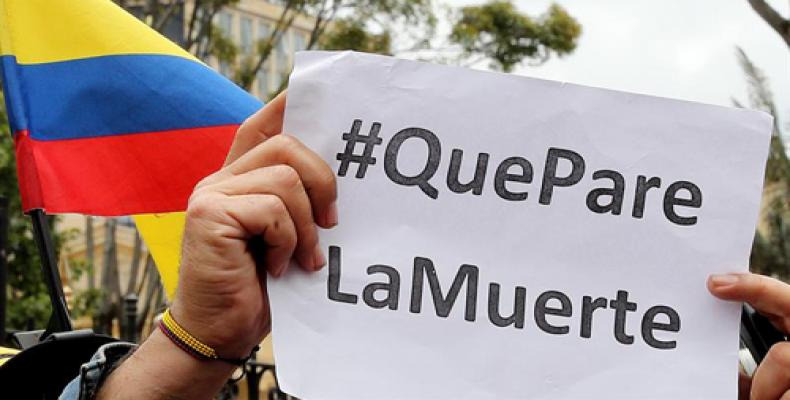
A little more than a month and a half into this year, the high numbers of murders and massacres in Colombia increase the concern that such actions will not have an immediate end
By María Josefina Arce
Colombia never ceases to be in the news. A little more than a month and a half into this year, the high numbers of murders and massacres increase the concern that such actions will not have an immediate end and the worst days are yet to come.
To get an idea of the complexity of the situation, let's go back to January. INDEPAZ, the Institute of Studies for Development and Peace, stated that the data collected showed that the number of massacres in that month doubled compared to the same period of time in 2021, as well as the number of deaths due to this type of crime.
Thirteen massacres with a death toll of 40 were recorded in January, according to INDEPAZ, which monitors these unfortunate events.
February did not start off any better. If we take into account the events of both months, the South American country will soon exceed 20 massacres, a truly alarming figure.
At the same time, the number of assassinations of human rights leaders and defenders increased. More than 20 of these crimes have already been counted, bringing to more than 1,300 the number of these activists eliminated since the signing in 2016 of the peace agreements between the government of then President Juan Manuel Santos and the once guerrilla Revolutionary Armed Forces of Colombia-People's Army (Fuerzas Armadas Revolucionarias de Colombia-Ejército del Pueblo).
The former combatants, who complied with the agreement and laid down their weapons, have also been targets of the wave of violence that is shaking Colombian territory. So far five have been killed, bringing to more than 300 the number of those who have lost their lives since 2016.
In view of this situation at the end of January, the Constitutional Court declared a state of unconstitutionality, considering that there is a massive violation of the peace agreement signed in Havana. The judicial body determined that there is a serious crisis that has affected the fundamental rights to life, personal integrity, security and peace of the ex-guerrillas, who are trying to reintegrate into society.
The Constitutional Court called on the government of President Iván Duque to adopt the necessary measures to guarantee the security of the ex-combatants, as agreed in 2016.
The truth is that little or nothing has been done under Duque's mandate for the full implementation of the peace agreements, which moreover, as signatories, experts and human rights defenders have reiterated, contains the necessary mechanisms to put an end to violence.
Colombian society saw the peace agreement with hope, but a little more than five years after its signing, violence continues to bleed a country that needs to heal its deep wounds.

